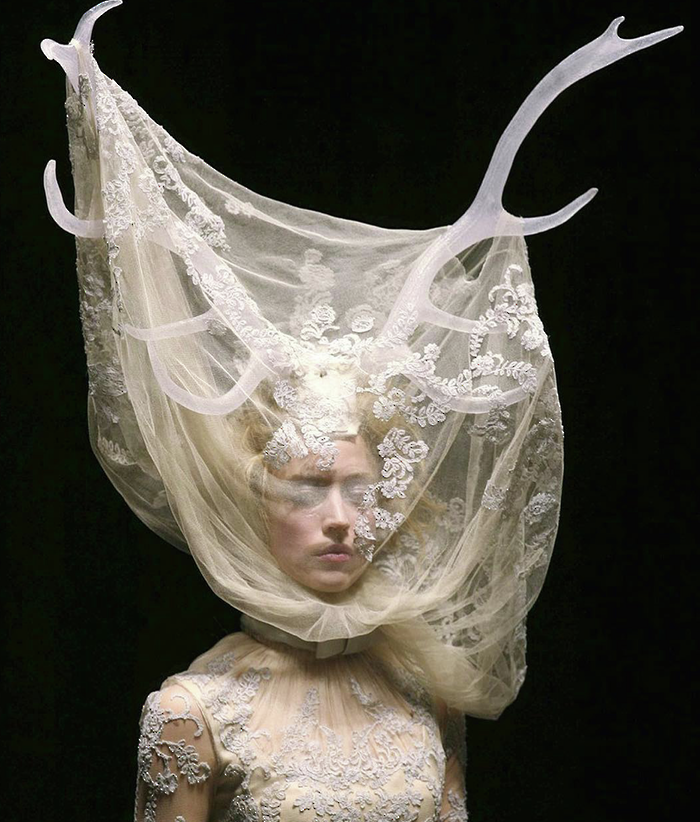The Birth of Digital Fashion: would you pay £7.5k for the ‘gram’?
Sophie Hoath debates whether fashion is heading down a disconcerting digital path, or if digital fashion is a Bansky-esque movement in the making
If you’re paying thousands of pounds for a dress, you’re well within your rights to have some high expectations. Offering custom-made, one-of-a-kind pieces that are, to all intents and purposes, indestructible, fashion house ‘The Fabricant’ seems an attractive prospect for those among us with rather unlimited pretty healthy budgets. There’s just one catch: their clothes don’t actually exist. Or at least, not in the traditional sense. The company made headlines with its £7,500 ‘digital dress’: a garment that one lucky buyer can have digitally rendered onto images of their body to share on the gram to their heart’s delight. Claiming it was an ‘investment’, Richard Ma, a successful American CEO, bought it for his wife Mary Ren.
Upon first hearing about 'the digital dress’, I reacted like I assume most people would: with a suspicion of the polluting ‘new technology’ which ‘kids nowadays’ are ‘taking too far’. The company’s claims that a digital outlook enables them to push boundaries with their fashion all seemed a bit ‘Black Mirror’ to me; it’s a pretty Catfishing mindset to believe that if you can’t have something in real life, faking it online is just as good. Fittingly, ‘The Fabricant’ originally got their inspiration for digital fashion from the video gaming industry - a ‘Black Mirror’ dystopian favourite. The implication is clear: we run the risk of losing our grasp on reality if we invest more in our digital selves than our actual selves.
‘The Fabricant’ may also be offering us a Banksy-esque middle finger to the modern world, should we choose to accept it.
The more I thought about our disconcerting online ‘realities’, the less I found myself able to maintain my sceptical stance on ‘The Fabricant’ without feeling a tingling of hypocrisy. Don’t get me wrong, if this is where fashion is headed then I suggest we change course quickly. However I couldn’t help but wonder: are we (myself very much included) not guilty of doing exactly the same thing as ‘The Fabricant’ when we upload a picture to Instagram wearing a garment that we bought for one evening, changed our mind on, and then promptly returned? Does ‘the digital dress’ not remind us of the fast-fashion formal dress that we got a couple of wears (and a new profile picture) out of, before we threw it away because it was worn out? When we pose for a group photo and refuse to stand on the end because ‘I don’t look good in this from the side!’ are we not offering our social media pages a cleverly-masked silhouette that we know we didn’t have on the night? On our online profiles we possess closets full of these ‘digital dresses’, so I struggle to see how we can fault be mad at ‘The Fabricant’ for pointing this out in a way that is far less destructive to the environment than our fast-fashion online endeavours.
We should face up to the reality that a lot of us have been spending money on the creation of an idealised online self for years now, we just haven’t been willing to admit it.
On reflection, I’m not ashamed to say that I’m actually kind of here for it. Yes, there’s some solid evidence for regarding digital-only fashion as the newest useless money-trap. Yet there’s an equally strong argument that the ‘The Fabricant’ may also be offering us a Banksy-esque middle finger to the modern world, should we choose to accept it. Reportedly, the artist’s self-shredding ‘Girl with Balloon’ painting increased in value after its semi-destruction. The artwork itself hadn’t gotten any better, but the hype surrounding it had - a testimony to the jarring reality that we are all too often willing to pay for the idea of something, rather than the thing itself. ‘The Fabricant’ didn’t invent this mindset, they just profit from it.
I’m not suggesting that we all throw our wardrobes out and take our outfits online; there’s still something deeply concerning and unfulfilling about possessing a digital appearance that doesn’t match up to your reality. What I am saying , is that before we regard digital fashion as ‘technology gone mad’, we should face up to the reality that a lot of us have been spending money on the creation of an idealised online self for years now, we just haven’t been willing to admit it.
 News / Right-wing billionaire Peter Thiel gives ‘antichrist’ lecture in Cambridge6 February 2026
News / Right-wing billionaire Peter Thiel gives ‘antichrist’ lecture in Cambridge6 February 2026 News / Cambridge students uncover possible execution pit9 February 2026
News / Cambridge students uncover possible execution pit9 February 2026 News / Epstein contacted Cambridge academics about research funding6 February 2026
News / Epstein contacted Cambridge academics about research funding6 February 2026 News / Man pleads guility to arson at Catz8 February 2026
News / Man pleads guility to arson at Catz8 February 2026 News / John’s duped into £10m overspend6 February 2026
News / John’s duped into £10m overspend6 February 2026









